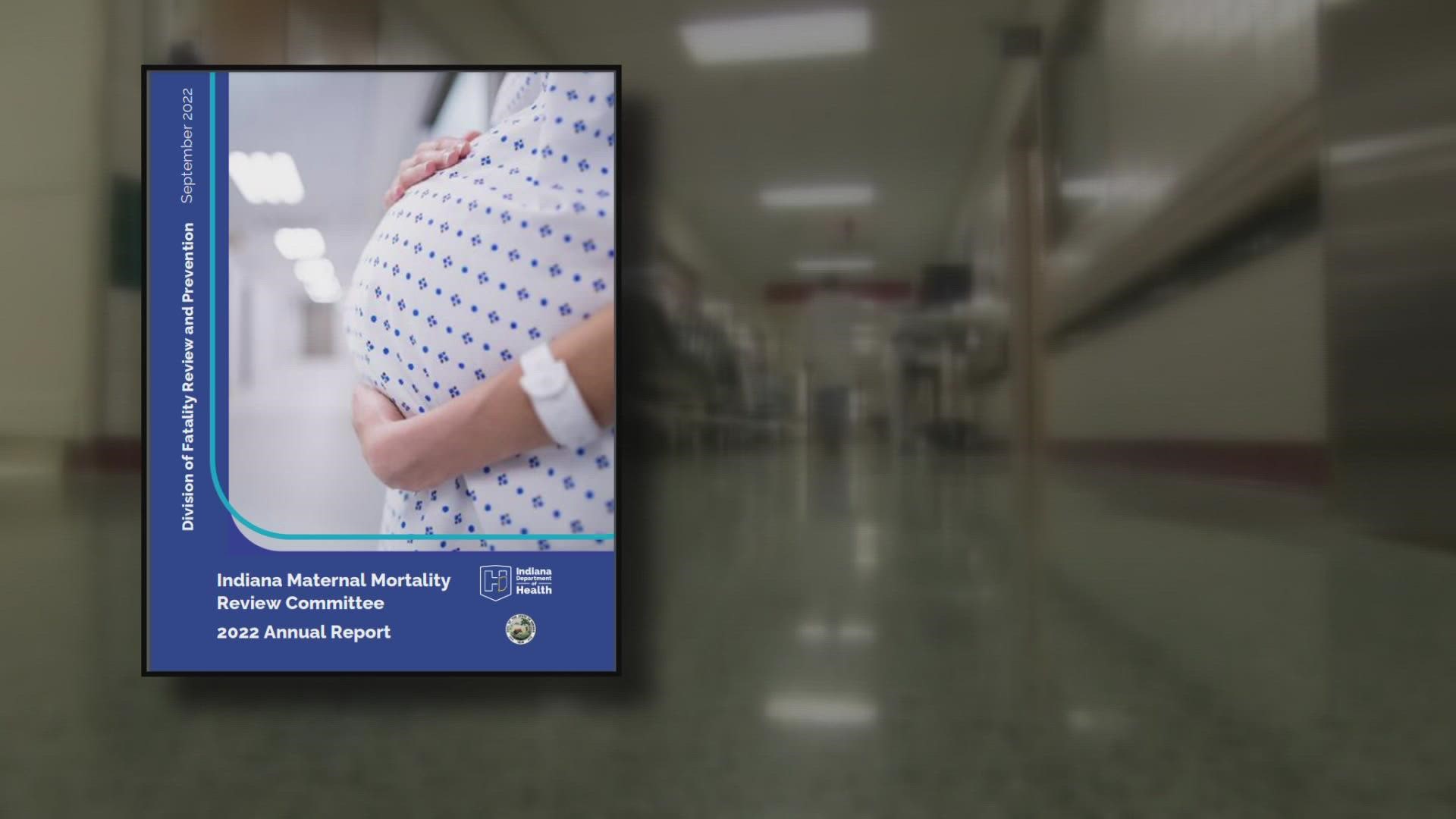INDIANAPOLIS — Ninety-two Hoosier women died during pregnancy or within one year of giving birth. That's according to a new report by the Indiana Department of Health.
"Even one maternal mortality is too many," said Dr. Caroline Rouse, assistant professor of clinical obstetrics & gynecology at IU School of Medicine.
Rouse, who is part of the committee, says the Indiana Maternal Mortality Review Committee's 2022 Annual Report is concerning.
"One thing the committee tries to do is to address areas where this death maybe could have been prevented from a variety of angles," said Rouse.
It found more than a 40% increase in pregnancy-associated deaths in Hoosier women in 2020, compared to 2019.
"It is really difficult to know exactly how much COVID affected people's access to medical care. We know that it absolutely did, and it is possible that is reflected in our maternal mortality rate ratio," said Rouse.
RELATED: Closure of Ascension St. Vincent Dunn Hospital could create maternity care desert in Lawrence County
The report, which looked at pregnant women ages 10 to 60, found:
- 83% of pregnancy-associated deaths occurred after giving birth, including 60 percent after six weeks.
- Substance use disorder was the "most common factor," contributing to 43% of all pregnancy-associated deaths in the state.
- Overdose, both accidental and undetermined, was "overwhelmingly the leading cause of death," accounting for 30.4% of all pregnancy-associated deaths.
Rouse says it's more common for deaths to occur during the postpartum period, but that there are a number of reasons why. One is mental health.
"Mental health conditions are not something just that go away after the birth of the baby. They can become worsened in the postpartum period. It can be a very stressful time for some people, and so making sure that we're paying attention to that and getting folks the care that they need is incredibly important," Rouse said.
The committee determined 79% of reviewed pregnancy-associated deaths in 2020 were preventable.
More than 300 recommendations came out of the report. Rouse says some of those included providers screening patients for substance use disorder and find out how to get patients into treatments.
She also said families and providers should have access to Naloxone in the event of an overdose.
Another recommendation was ensuring women had universal access to birth control.
"For many people, it can be a really great option to preventing pregnancy and having people able to be in control of whether or not, and when, they become pregnant is just so critically important to the ongoing health of that person," said Rouse.
Indiana began reporting on maternal mortality in 2018. Three years of review also show there are even more Black women experiencing more pregnancy-associated deaths.
You can read the full report here.

